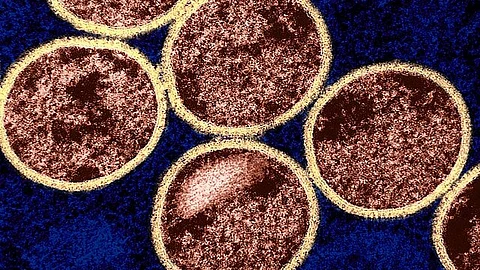A 40-year-old man from Karkala, Udupi district, has tested positive for monkeypox (Mpox), marking Karnataka's first case of the year. The patient, who has worked in Dubai for 19 years, arrived in Mangalore on January 17. Soon after, he developed fever and rashes and was admitted to a private healthcare facility where he is currently isolated.
The case was confirmed by the National Institute of Virology (NIV), Pune, following tests conducted at BMC Bangalore. Harsh Gupta, Principal Secretary of Health and Family Welfare, confirmed the patient’s condition as stable and reassured the public that Mpox is a mild and self-limiting disease.
Infectivity and Mode of Transmission
Harsh Gupta noted that Mpox is less infectious than COVID-19 and spreads through very close and intimate contact.
Dr. Ansar Ahmed, Project Director of the Disease Surveillance Programme (IDSP), added that it is a zoonotic illness, transmitted through bites or scratches from infected animals like monkeys, rats, or squirrels, as well as through handling bush meat. Additionally, close contact with infected pets or individuals can lead to transmission.
Precautionary Measures and Contact Tracing
Health authorities have identified 20 primary contacts, including the patient’s wife, who accompanied him from the airport to the hospital. All contacts have been instructed to self-isolate as a precaution. Dr. Ahmed emphasized the importance of isolating confirmed cases to curb the spread of the disease.
Symptoms and Treatment
Common symptoms of Mpox include fever, headache, muscle aches, exhaustion, chills, sore throat, cough, and skin lesions.


